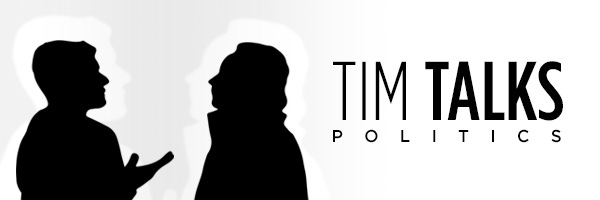Tim Talks Politics - The Weekly Brief, June 15, 2018

The Weekly Brief - June 15, 2018
Singapore Spring
Amidst much fanfare this last week, Donald Trump finally met with Kim Jong Un. The meeting was broadly welcomed in Asia and cautiously celebrated in the United States as a potential starting point for a more stable relationship between the two countries.
Post summit, attention now turns to what was gained and what if anything was lost. The quintessential question of winners and losers follows every such summit, but as in most things diplomacy that picture won't develop for quite some time. What is interesting is to note now is the comparative smallness of the outcome of the summit: a short, joint statement by the two leaders.
Given the history of hostility between The two countries, however, maybe this was the best we could hope for. Questions now remain over what comes next after the meeting with many observers skeptical of any easier going after this meeting. Across the political spectrum criticism is now leveled at Trump’s apparent belief that it will get easier.
The Council on Foreign Relations believes that America gave up more than it gained which is largely agreed to by the more conservative American Enterprise Institute that questions Trump's ability to actually normalize relations with North Korea. However, the Carnegie Endowment for International Peace argues that despite small, if any, gains, Trump was still right to give the summit a shot and meet with Kim.
G7, Hit. Sunk?
Singapore wasn't the only major diplomatic summit that Trump had to attend in the last week. He also attended a meeting of the G7 in Quebec. The outcome of this meeting, however, has become the stuff of memes as most observers have concluded that Trump effectively gave the post-cold war liberal constellation it's hardest knock yet, though the Carnegie Endowment for International Peace argues that American credibility is still intact.
What was meant to be a meeting for America and its European allies to work out some of their difficulties on trade appeared to go in exactly the opposite direction.
Despite the fallout of what was clearly an acrimonious meeting, the Brookings Institute points out that the United States and Europe still need each other in order to move major global initiatives forward.
One of those regions in which Europe and the United States need to work in concert is the Middle East. Ongoing fighting in Yemen is placing one of the few port cities that receives humanitarian aid under threat of assault, which can only make the human suffering in Yemen far worse than it already is.
Additionally, the two-state solution is apparently back on the menu in the Israeli-Palestinian conflict, which means that there may be calls for renewed diplomatic efforts from America and Europe. In other words, despite differences on trade allies are still allies and the world still looks to the leading powers to make a difference.
The Future of Diplomacy
Between the North Korea and G7 summits the clearest message is that the evolving Trump diplomacy is a mixed bag. However, mixed bag isn't necessarily a bad thing as Politico points out that Trump is infusing diplomacy with a certain excitement it has lacked in the recent past.
This might actually be the type of diplomacy that's needed as the world takes an increasingly fractious, realist turn in terms of diplomacy and foreign policy. The future of American foreign policy, however, should not be entrusted to any one person as there are too many trends that need to be watched over the long-term, and, as Bret Stephens notes, Trump is no Reagan.
Two of the major trends that are going to be challenging to American foreign policy and its partners in the near future are going to be the ongoing use of aid and development programs which can be used to offset political violence.
This is a hard sell in an “America first” world but a necessary one as the American Enterprise Institute points out that youth radicalization is on the rise and the West is ill prepared for it. So the ongoing challenge to American foreign policy in the Trump era is not necessarily diplomacy, but strategic thought and the ability to tie different trends and issues into a larger narrative that can govern policy initiative.
Domestic Policy: Immigration and the Budget
Today (Friday) protests are scheduled around the country regarding the Trump administration's immigration enforcement policies.
The major issue stoking these policies is not just stricter enforcement, but the increasing amount of family separation at detention facilities. This poses an ethical challenge to America's immigration policy debate that must be addressed in any future immigration reform measures. In a speech yesterday, Attorney General Jeff Sessions sought to outline some elements of that ethical question.
Meanwhile, at the border they were supposed to help secure, Politico reports that federal troops are kept in the rear, as unarmed support to the Border Patrol.
Despite the bad press regarding separation of families at the border, recent poll shows that people still trust Republicans over Democrats when it comes to matters of national security.
Besides immigration policy, attention now turns to the budget as the fiscal year draws to a close. The Heritage Foundation proposes several fixes that could smooth out the budget process and hopefully get closer to a balanced budget (read the abridged version at the Daily Signal). We'll see if it actually gets put into effect.


